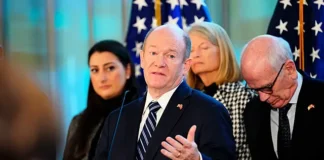The World Bank has recommended that the Kenyan government exempt low-income earners from contributing to the housing levy and the Social Health Insurance Fund (SHIF), citing concerns over increased labor costs and reduced formal employment.
The housing levy, introduced in June 2023 under President William Ruto’s administration as part of the Affordable Housing Programme, requires employees to contribute 1.5 percent of their gross monthly salary, matched by an equal contribution from employers. The initiative aims to bridge the housing deficit and create jobs, particularly for the youth.
However, in its latest Public Finance Review for Kenya, the World Bank criticizes the levy as “relatively unpopular,” warning that it inflates labor costs and discourages formal employment.
The global financial institution recommends a policy reform that exempts individuals earning up to Ksh.32,333 per month, approximately half the average wage, from the housing levy. “This adjustment would enhance tax progressivity while having minimal impact on revenue, accounting for only a 0.08 percent decline in personal income tax (PIT) and social security contributions,” the report states.
To offset this minor revenue dip, the Bank suggests a marginal increase in contributions from higher-income earners.
The World Bank also took issue with the structure of SHIF, which replaced the National Health Insurance Fund (NHIF) in October 2024. Under the new system, formal sector workers contribute 2.75 percent of their income, while informal sector workers are required to pay the same rate based on household income, with a minimum of Ksh.300.
However, compliance among informal workers remains low, with SHIF expected to collect only Ksh.67 billion annually against a target of Ksh.157 billion. The World Bank argues that SHIF’s payroll tax structure disincentivizes formalization, especially for low-income earners and small businesses.
“This creates a structural contradiction, SHIF depends on formalization to succeed yet actively undermines it,” the report reads.
The Bank proposes that SHIF contributions for low-wage formal workers be scrapped, and the government should instead finance these contributions through the national budget. This, it says, would reduce labor market distortions, promote formalization, and ensure health coverage for the poor and informal sector workers.
Written By Rodney Mbua














![[Full List] – Safaricom, Absa and Britam Named Among Top Employers for 2026](https://uzalendonews.co.ke/wp-content/uploads/2026/01/Screenshot-2026-01-15-190157-218x150.png)




